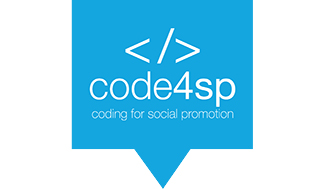The Year of 2023 has really been the Year of releases of AI (Artificial
Intelligence) models so far. Everywhere people are talking about AI, be it in
the public or private sphere of everyday life. Be it chatgpt, the new Bing AI
Search Options, or so many more applications and websites where AI has gained
attention.
No wonder that we at Code4SP also thought about how AI might and is
already changing Coding. How will it change the present and future Generation
who is learning or will learn to code?
We researched and found a paper written by six researchers based in
Ireland, USA, and New Zealand. The paper is called “Programming Is Hard – Or at
Least It Used to Be: Educational Opportunities and Challenges of AI Code
Generation”. You can access it here: https://dl.acm.org/doi/abs/10.1145/3545945.3569759
(last access: 30th August 2023).
The paper aims
to plant a seed, opening the discussion about AI in the computing education
community and addressing the importance of the computing education community
acting quickly. Using AI to code
is already possible and can be attractive to use. However, these AI tools
present multiple opportunities and challenges. Opportunities can be that the AI
models in the realm of the computational education community, can be an aid to
students, who are learning to code. Challenges can be the appropriate use of
those AI tools in the educational training.
The main Opportunities detected by the authors are Code Solutions for
Learning, Producing Learning Resources, New Pedagocical Approaches. The main challenges
mentioned are: Ethical Issues, Bias and Bad Habits, and Over-reliance.
Underneath a table where we put together the Chapters and Subchapters which
address the Opportunities and Challenges mentioned in the paper.
|
Overview of the Opportunities and
Challenges mentioned by the authors |
|
|
OPPORTUNITIES |
CHALLENGES |
|
|
|
|
Code Solutions for Learning |
Ethical Issues |
|
·
Exemplar
solutions ·
Variety
of solutions ·
Code
review of solutions |
· Academic
misconduct ·
Attribution ·
Code
reuse and licensing ·
Sustainability
(-> consuming a lot of energy to train AI models and to use them) |
|
Producing Learning Resources |
Bias and Bad Habits |
|
·
Exercise
generation ·
Code
explanations ·
Illustrative
examples |
· Appropriateness
for beginners ·
Harmful
biases ·
Security |
|
New Pedagocical Approaches |
Over-reliance |
|
·
Explaining
algorithmic concepts clearly ·
Alleviating
programmer’s writer’s block ·
Overcoming
traditional barriers |
·
Reinforcing
behaviors that impede learning |
The authors
conclude: “We believe AI-generated
code coupled with demands from industry will force us to face ethical issues in
computing education from the very beginning of the curriculum. Without quick,
concerted efforts, educators will lose advantage in helping shape what
opportunities come to be, and what challenges will endure – in a landscape that
is changing faster than ever.” (p.505).
The
Opportunities and Challenges mentioned in the paper in the field of
computational educational community, are similar to those Opportunities and
Challenges discussed in other fields. Showing even more how important it is to
have these kinds of discussions in our society, educational realms, and
companies. Only by addressing the opportunities and challenges, discussing
them, and finding ways to navigate the new present with AI models, we will be
able to find ways which support our communities, societies, and environments.
Paper:
Brett A. Becker, Paul Denny,
James Finnie-Ansley, Andrew Luxton-Reilly, James Prather, and Eddie Antonio
Santos. 2023. Programming Is Hard - Or at Least It Used to Be: Educational
Opportunities and Challenges of AI Code Generation. In Proceedings of the 54th
ACM Technical Symposium on Computer Science Education V. 1 (SIGCSE 2023).
Association for Computing Machinery, New York, NY, USA, 500–506.
https://doi.org/10.1145/3545945.3569759






